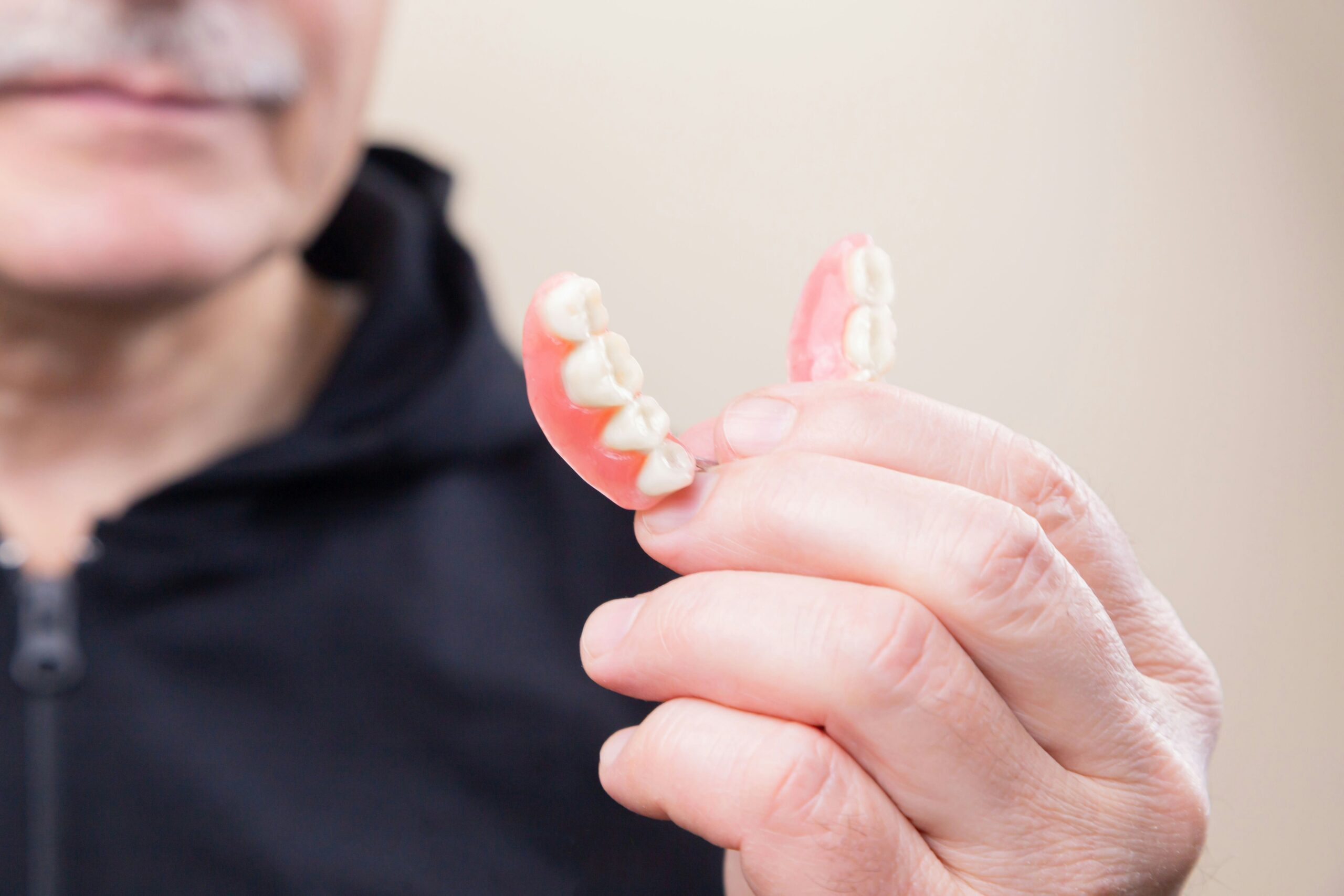How Long Do Dentures Last: Lifespan and Maintenance

Typically, dentures have a lifespan of 5 to 7 years, mirroring the natural wear and staining that occur with time. Given the dynamic nature of your mouth, it undergoes constant changes, necessitating periodic adjustments to ensure a proper fit for your dentures. We recommend scheduling an annual denture check-up with your dentist to address any modifications required.
- How Long Do Dentures Last: Lifespan and Maintenance
- How often should dentures be changed?
- How to Extend the Lifespan of your Dentures?
It is crucial to promptly inform your dentist about any signs of irritation, no matter how minor they may appear. Your well-being and comfort remain our top priorities.
It’s worth noting that when you opt for Aspen Dental for your dentures, you can rest assured that we are committed to exceeding your expectations. Our dedication is centered around ensuring you have a positive experience, allowing you to laugh, talk, eat, and smile with confidence at every stage of the process.
How often should dentures be changed?
According to statistical data, full dentures generally endure for a period ranging from 5 to 10 years, while partial dentures boast a maximum longevity of around 15 years. Over this timeframe, both your oral structure and the dentures themselves may undergo significant changes, leading to an improper fit and a less-than-ideal appearance.
In the case of immediate or temporary dentures, which are utilized for a brief period until permanent dentures are ready, their lifespan is typically measured in months—around two to three months following the extraction of natural teeth.
The frequency at which new dentures are required is influenced by the evolving nature of your mouth over the years. It is strongly recommended for denture wearers to undergo a dental check-up every 12 months or at the earliest signs of discomfort, such as clicking or gagging, even if these symptoms seem transient.
Despite diligent efforts to whiten and remove stains from dentures, they undergo wear and tear similar to natural teeth. When dentures cease to look aesthetically pleasing or no longer fit snugly, resulting in looseness within the mouth, it’s time for adjustments such as relining, rebasing, or remaking, depending on the extent of changes in your oral structure or the deterioration of the dentures.
Regardless of the material used, full dentures typically maintain their integrity for 5 to 10 years, while partial dentures exhibit an overall lifespan of 15 years. If you’ve worn the same dentures beyond their anticipated lifespan, it is advisable to have them examined by a dental professional to determine their continued suitability and effectiveness.
How to Extend the Lifespan of your Dentures?
Ensuring an extended lifespan for your dentures involves various strategies, including relining, rebasing, and maintaining a diligent oral care routine.
Understanding Relining and Rebasing: Relining and rebasing are two techniques employed by dentists to prolong the durability of dentures. Relining entails the reshaping of the underside of dentures, enhancing comfort on the gums while preserving their overall integrity. On the other hand, rebasing is a more intricate process involving the complete replacement of the denture’s base material—the plastic component simulating gum tissue. This method imparts greater stability and an improved fit to the dentures.
Effective Denture Care Practices: While eventual replacement is inevitable, proper care significantly contributes to extending the lifespan of full and partial dentures. Adopt the following practices to ensure a prolonged denture lifespan:
- Daily Cleaning Routine:
- Remove dentures before bedtime, rinse them with warm water, and delicately brush with a soft-bristled brush and nonabrasive denture cleanser.
- This routine helps eliminate food particles, plaque, and other deposits that can compromise the dentures.
- Nightly Moisture Maintenance:
- Dentures should be kept moist to preserve their original shape. Soak them overnight in a glass of water or a denture-soaking solution.
- Regular Dental Check-ups:
- Schedule regular visits to your dentist to ensure proper denture fit.
- Dentists can provide professional guidance, address any discomfort caused by dentures, and offer necessary medical assistance.
By adhering to these practices, you contribute to the longevity of your dentures, enjoying their functionality and comfort for an extended period.




